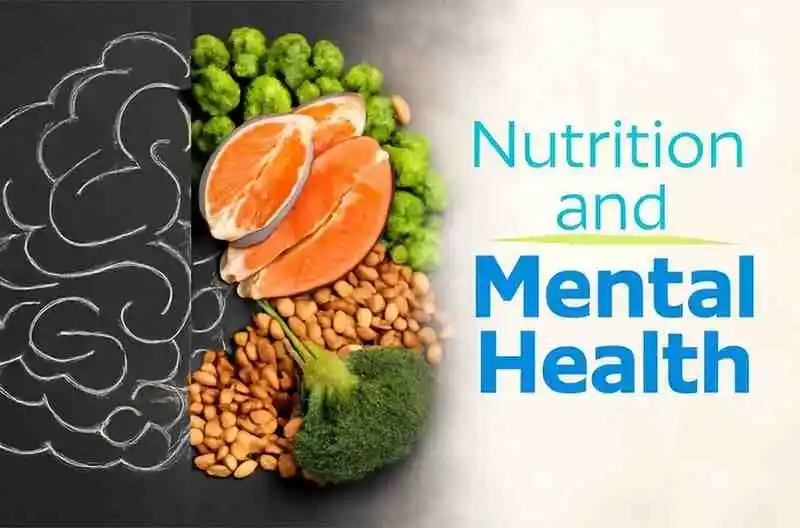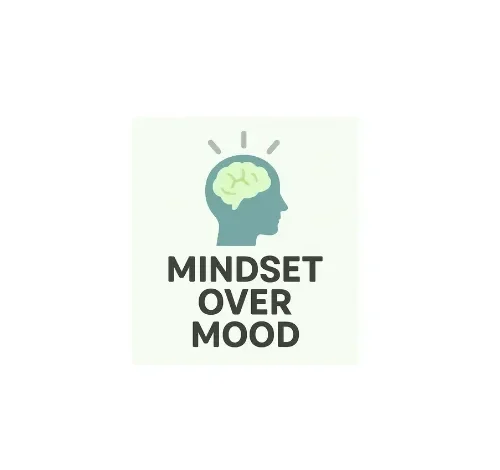
Nutrition and Mental Health
Introduction
When we talk about Nutrition and Mental Health, it is more than just the acquisition of nutrients from foods to gain energy and maintain our physiological systems and their functions. From antiquity, the Greek physician Hippocrates prescribed certain food to heal medical problems, showing that what we eat could serve as treatment for both physical ailments and even issues linked to the mind.
I often recall how early health care providers embraced this concept Nutrition and Mental Health, long before the twentieth century, when medical professionals began shaping new theories about digestion, blood, and ways to alleviate mental illnesses through diet.
By the 1920s, scientists highlighted how vitamins like B, C, and trace minerals such as manganese could be linked to treatments for psychological symptoms. I’ve seen how medical guides, medical journals, and carefully designed experiments helped explain how poor nutrition, toxins, or associated mental disorders might tie to brain chemistry.
During the 1950s, pharmaceutical companies started manufacturing drugs, but alongside this, psychological therapies were encouraged by mental health professionals, physicians, and pharmaceuticals to treat the mind. Today research into Nutrition and Mental Health is still investigating the funding, interest, and evidence supported by science, aiming to achieve balance against deficiencies caused by unbalanced diets.
From brain development to how food influences brain structure, daily performance, access, or even deprivation, diet clearly shapes both prevention and treatment approaches. Yet, much scientific research remains inconclusive, leaving skeptics questioning the valid role of Nutrition and Mental Health in overall well-being.
Nutritional Balance
When I first learned how deeply Nutrition and Mental Health are connected, it changed how I looked at food. Many scientists and researchers agree that mental health is strongly connected to what human bodies consume daily. The Royal College of Psychiatrists even reminds patients that nutritious foods can support recovery from mood disorders alongside antidepressants or other pharmaceuticals.
From my own teaching experience, I’ve seen toddlers and even teenagers show sharper thinking skills and better moods after balanced breakfasts compared to mornings when they ate sugary foods or skipped meals. Clinical studies highlight that approximately 60 percent of the human brain is made of fat, and that omega-3 fatty acids found in fish, seeds, and nuts are essential for brain development, focus, and preventing mental impairment.
Michael A. Crawford at the Institute of Brain Chemistry and Human Nutrition at London Metropolitan University was among the first to hypothesize in the mid-twentieth century that deficiency of these fats could impair cognitive abilities and even contribute to conditions like schizophrenia, Alzheimer’s disease, or attention-deficit hyperactivity disorder (ADHD) highlighting how Nutrition and Mental Health go hand in hand.
I’ve noticed that when diets are dominated by processed foods, refined sugar, saturated fat, and additives, both children and mothers struggle with concentration and even panic attacks. On the other hand, healthful foods rich in vitamins, minerals, proteins, amino acids, and phytonutrients help regulate neurotransmitters such as serotonin, reducing agitation and helping to stabilize moods.
Foods like poultry, soy, and cheese provide tryptophan, which the body converts into chemicals that alleviate sadness and angry feelings. According to the Mental Health Foundation (MHF) and their 2006 report Feeding Minds, Impact of Food on Mental Health, a nutrient-deficient diet influenced by harmful pesticides, hormones, and convenience foods can have a negative impact on behaviour, well-being, and even resiliency.
That’s why affiliated groups like Sustain and nonprofits such as Food for the Brain continue to encourage consumers in the United Kingdom to choose fresh ingredients, varied food groups, and nutritiously prepared meals for both children and British schoolchildren. Their April 2006 campaign, Campaigns like Changing Diet, Changing Minds showed that cleaner farming and safer food directly improved both Nutrition and Mental Health across communities.
How are Nutrition and Mental Health Linked?
From my own experience working with children and young people, I’ve seen how the foods they choose can affect how well they cope with daily stressors and how they manage their emotions. A nutritious diet filled with nutrient dense food groups gives the body and brain the essential fuel they need for learning, development, and sleep.
On the other hand, poor nutrition is often associated with greater risk of conditions like depression and anxiety. Research strongly shows that Nutrition and Mental Health are influenced by many factors, including poverty, education, employment, and family background.
I have also observed that adults experiencing emotional, behavioural, and developmental challenges such as hyperactivity, frustration, or aggression often report tiredness, decreased concentration, or weakened immune system function. In some cases, iron deficiency and other deficiencies lead to cognitive impairments, memory lapses, or even delayed physical development.
This can directly affect academic performance, social interactions, and the ability to build friendship networks. Caregivers, especially for neurodiverse individuals, notice how poor food security worsens both Nutrition and Mental Health. In places like Australia, malnutrition still affects emotional well-being, showing that diet plays a lifelong role in preventing mental strain.
How does Nutrition and Diet Affect my Mental Health?
From my own experience as someone who has explored the connection between diet and mental well-being, I have noticed the clear impact it has on how I feel both physically and mentally. When the body gets the right balance through mindful eating, certain foods actually make me feel calmer, happier, and even more confident in facing daily challenges.
On the other hand, slipping into unhealthy habits quickly begins to affect my energy and mood, leaving me restless or drained. It’s like the way you treat your body becomes the way you see and value yourself.
I’ve also observed that every meal is more than just fuel, it’s an ongoing relationship with the self. Choosing whole foods over processed ones helps me think clearer and react more positively to stress.
While not every day is perfect, being aware of how diet shapes emotions allows me to make better choices that support my mental health. Small shifts in eating patterns can create powerful changes in how one feels, strengthening both the body and the mind to stay resilient and confident.
Nutrient Quality
I’ve noticed in my own life that eating the right foods can completely shift my mood and energy during the day; when I fill my plate with fruits, vegetables, and whole grains, I feel more focused and calm, while meals rich in lean proteins and healthy fats give my brain the steady fuel it needs to stay sharp.
These choices reveal the direct connection between food quality, Nutrition and Mental Health, showing how the quality of what we eat directly shapes not just our body but also our mental well-being.
Gut-brain Connection
From my own journey of improving well-being, I’ve noticed how closely the gut and brain are tied through what we are eating each day, and this link is far stronger than many people think. Choosing the right foods, like yoghurt and fibre-rich meals, can actually help the mind function smoothly and even make you feel much better mentally.
As someone who once overlooked simple habits, I found that just adding probiotic-rich snacks and natural fibres into my diet gradually lifted brain fog and supported my focus. I’ve personally felt improvements in focus and emotional balance simply by adding more gut-friendly foods, proving how Nutrition and Mental Health are linked through the digestive system.
Blood Sugar Control
From my own experience, High sugar diets disrupt Nutrition and Mental Health by causing energy spikes and crashes. Balanced meals with whole ingredients help stabilize blood sugar, leading to steady moods and energy.
Simple daily choices in diet act as tools for protecting both physical and mental health, further proving the significance of Nutrition and Mental Health.
Inflammatory Foods
From my own journey of balancing diet and emotions, I noticed how certain foods like sugary treats and processed snacks can silently cause inflammation in the body, making mental health conditions such as depression and anxiety feel even worse.
When I shifted to eating more anti-inflammatory options like fish, nuts, and colourful fruits and veggies, I felt a real change. These results highlight the importance of diet in balancing Nutrition and Mental Health.
Mental Disorders and Nutrition
When I first began studying the connection between Nutrition and Mental Health, I was surprised at how far back this link goes. In the 1960s, some scientists hypothesized that certain foods like grains containing gluten could worsen conditions such as schizophrenia.
Later, researchers found in the British Medical Journal (2004) that people who were gluten intolerant or living with celiac disease showed less psychological distress when removing this protein from their diets, which often eased their symptoms.
Influential voices such as Psychologist Patrick Holford, along with Hoffer and Pauling, stressed that nutritional plans tailored to individual patients could help restore balance in brain biochemistry. At the Institute for Optimum Nutrition and the Brain Bio Centre, they devised approaches where mental health professionals and caregivers would carefully monitor progress, ensuring that appropriate foods and nutrients were not overlooked in psychiatric treatment.
From my own work with patients, I have seen how food allergies and nutrient deficiencies can impair mental health and even interfere with recovery from eating disorders or mental illness. Many mentally ill individuals hold distorted ideas about food, so therapeutic nutrition requires patience and guidance.
The restoration of adequate nourishment to both body and brain often depends on detailed physical examinations that reveal hidden nutritional vulnerabilities. Evidence from clinical trials shows that nutritional needs vary with life stages. Mothers facing neglect of children’s nutrition from birth risk severe malnourishment that intensifies problems such as zinc-related ADHD, iodine insufficient diets, or damage to developing brains. Pregnant women especially need crucial nutrition, since a lack of it can be detrimental to prenatal brain development.
The United Nations Children’s Fund has estimated that each year insufficient vitamins and minerals lead to over one million child deaths, while twenty million youths in the early 2020s face impaired mental abilities. The World Health Organization reported that 45 percent of child deaths are linked to malnutrition. Global organizations like Nutrition International continue to fight for improvements in Nutrition and Mental Health by fortifying foods and promoting balanced diets worldwide.



